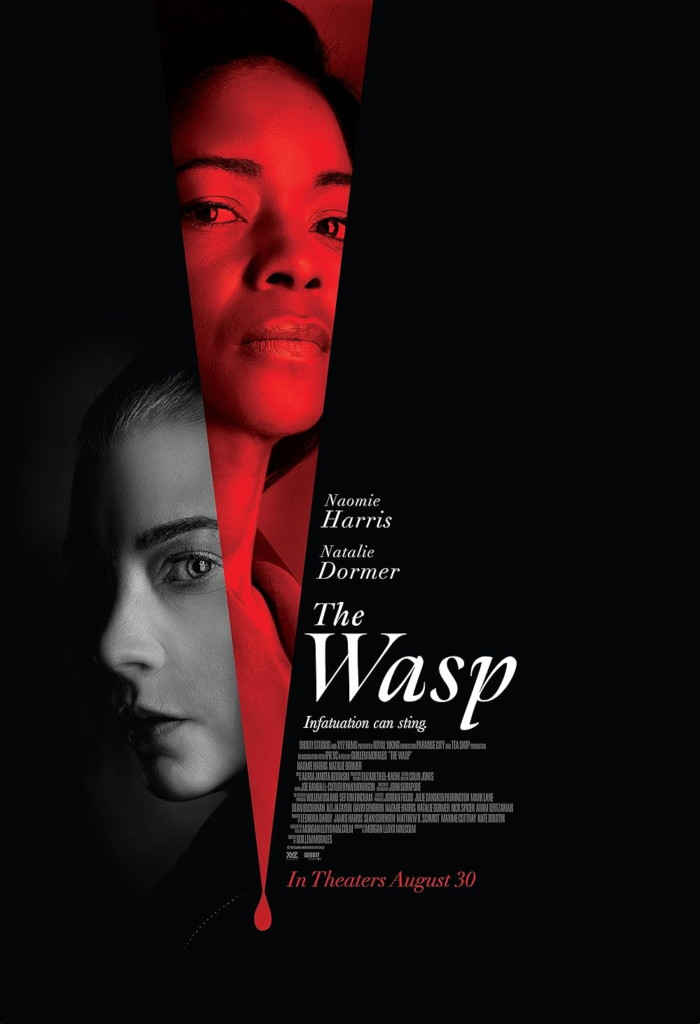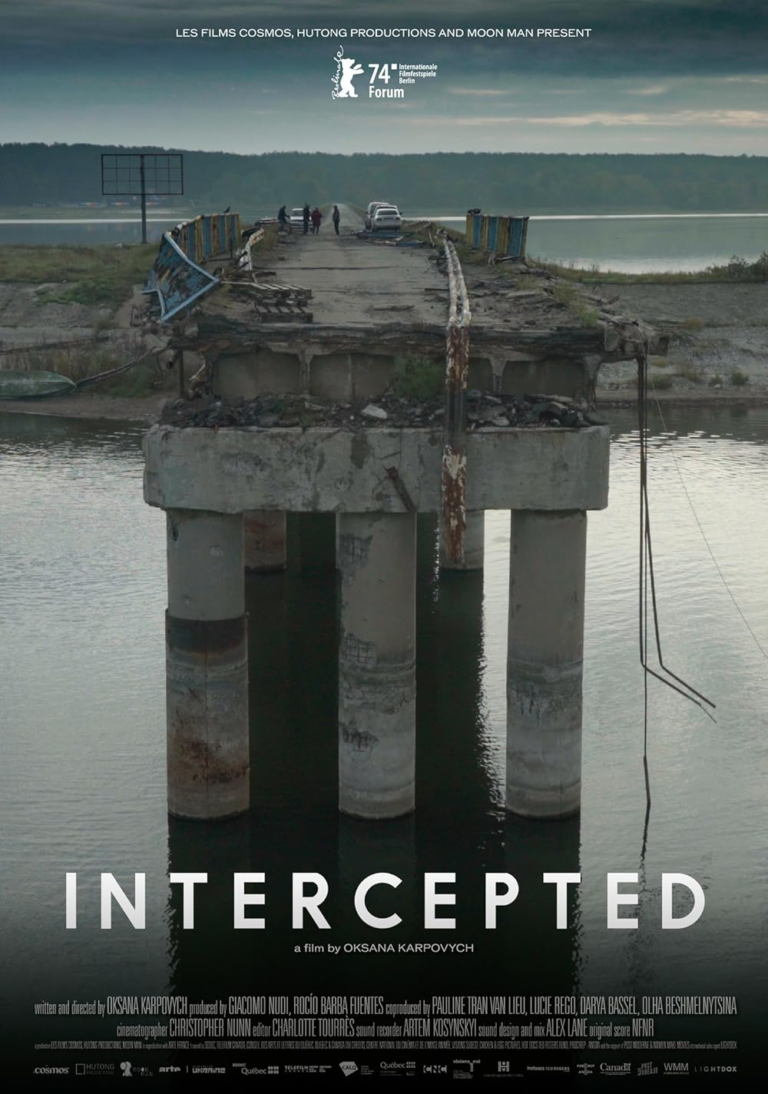The Wasp Christian review

“The Wasp” is the kind of film that creeps up on you. It’s not loud or overly flashy, but something is unsettling about it from the get-go. You know you’re in for a ride, even if you’re not entirely sure where that ride is going to take you. Now, from a Christian perspective, this film is a bit of a tough nut to crack. There’s a lot going on, both in terms of the performances and the themes it’s trying to explore, but whether it’s all worth the journey is up for debate.
Let’s start with what works. The performances. Natalie Dormer and Naomie Harris are the backbone of this film. Without them, “The Wasp” would probably fall flat. Dormer, with her sharp, almost predatory presence, contrasts perfectly with Harris, who brings a more grounded, albeit equally intense, energy to the table. Their on-screen chemistry is undeniable, and it’s their interactions that keep the film’s engine running, even when the plot itself starts to sputter. You can feel the tension in every glance, every pause, and that’s no small feat.
But here’s where things start to get tricky. The plot. On the surface, “The Wasp” is a psychological thriller, a slow-burn tale of deception and revenge. But dig a little deeper, and it becomes clear that the story is trying to do a lot—maybe too much. It’s like the filmmakers couldn’t quite decide whether they wanted to create a character study, a social commentary, or just shock the audience for the sake of it. In trying to do all three, the film ends up feeling a bit disjointed.
For instance, the plot twists. Sure, they’re shocking, but they also feel a bit too convenient, like the filmmakers were more concerned with delivering a gut punch than telling a cohesive story. There’s a fine line between clever and contrived, and “The Wasp” occasionally stumbles over it. The slow pacing doesn’t help either. At times, it feels like the film is dragging its feet, delaying the inevitable reveal in a way that tests the audience’s patience more than it builds suspense.
Now, let’s talk about the themes because this is where things get really murky from a Christian standpoint. The film delves into some pretty dark territory—deception, betrayal, revenge—without offering much in the way of redemption. The characters are driven by anger, resentment, and a desire for vengeance, and there’s no real attempt to explore these emotions in a meaningful way. Instead, they’re just there, fueling the plot, but not really leading anywhere productive.
As a Christian viewer, this can be problematic. We’re taught to seek forgiveness, to turn the other cheek, and to find redemption in the face of sin. But “The Wasp” doesn’t offer that. There’s no moral resolution, no path to healing. The characters are stuck in their cycles of bitterness and revenge, and the film seems content to leave them there. It’s a bleak outlook, and it’s hard to walk away from the film without feeling a bit hollow.
Then there’s the issue of moral relativism. The film doesn’t really draw clear lines between right and wrong, which might be a reflection of our current cultural climate, but it’s also a bit troubling. In “The Wasp,” everything is shades of gray, and while that might make for an interesting narrative, it also leaves you wondering what the point is. If there’s no clear message, no moral takeaway, then what are we supposed to learn from all this? It’s a question that the film never really answers, and that’s a shame.
That said, there are some positive elements to consider. The film’s portrayal of unresolved anger and bitterness is powerful, and it serves as a reminder of the destructive potential of these emotions. In that sense, “The Wasp” could be seen as a cautionary tale. It shows us what can happen when we let our grudges fester, when we allow past hurts to dictate our actions. It’s not a pleasant lesson, but it’s a valuable one.
The discomfort that the film evokes isn’t necessarily a bad thing either. Sometimes, we need to be uncomfortable to really examine ourselves and our own lives. “The Wasp” doesn’t offer easy answers, but it does prompt us to think—about our relationships, our emotions, and how we deal with the things that hurt us. It’s not a film that you watch passively; it demands engagement, and that’s something worth noting.
But when it comes down to it, “The Wasp” is a film that’s more about the journey than the destination, and whether that journey is worth it is going to depend on what you’re looking for. If you’re after a straightforward thriller with a clear moral message, you’re probably going to be disappointed. But if you’re willing to wrestle with the film’s ambiguity, to sit with the discomfort it creates, then there’s something here to be gained.
In the end, though, it’s hard to ignore the film’s shortcomings. The lack of a redemptive arc, the moral ambiguity, the slow pacing—these are all things that hold “The Wasp” back from being something truly great. It’s a film that’s trying to do a lot, but it doesn’t quite succeed in tying everything together in a satisfying way.
So, what’s the final verdict? As a thriller, “The Wasp is intriguing but flawed. It’s a film that lingers with you, sure, but not always for the right reasons. The performances are stellar, and there’s no denying the tension that builds between the two leads, but the film’s lack of a clear moral direction and its tendency to prioritize shock over substance makes it a challenging watch for those looking for something more spiritually uplifting.
If you’re someone who enjoys films that make you think, that leaves you with more questions than answers, and who isn’t afraid to dwell in the darker corners of human experience, then “The Wasp” might be worth your time. But be prepared to grapple with its ambiguity and to come away with a sense of unease rather than resolution.
For Christian viewers, it’s important to approach this film with discernment. It’s not a movie that offers easy answers or a path to redemption. Instead, it presents a world where anger and revenge take center stage, leaving little room for forgiveness or grace. While there are moments that may prompt reflection on the dangers of holding onto bitterness, the overall tone of the film is one of bleakness and despair.
In conclusion, “The Wasp” is a film that excels in its performances and its ability to create tension, but it falls short of offering a satisfying or meaningful narrative. Its ambiguous moral landscape and lack of a redemptive resolution may leave Christian viewers feeling unfulfilled. The film is worth watching for its strengths, but it’s not one that will provide a clear or uplifting message.
Rating: 5/10
This score reflects the film’s merits in terms of acting and suspense, but it also takes into account the lack of moral clarity and the troubling themes that make it a difficult recommendation from a Christian perspective. While “The Wasp” might resonate with those who appreciate complex and dark thrillers, it’s a film that requires careful consideration and discernment, especially for viewers who value clear moral guidance and redemptive storytelling.







